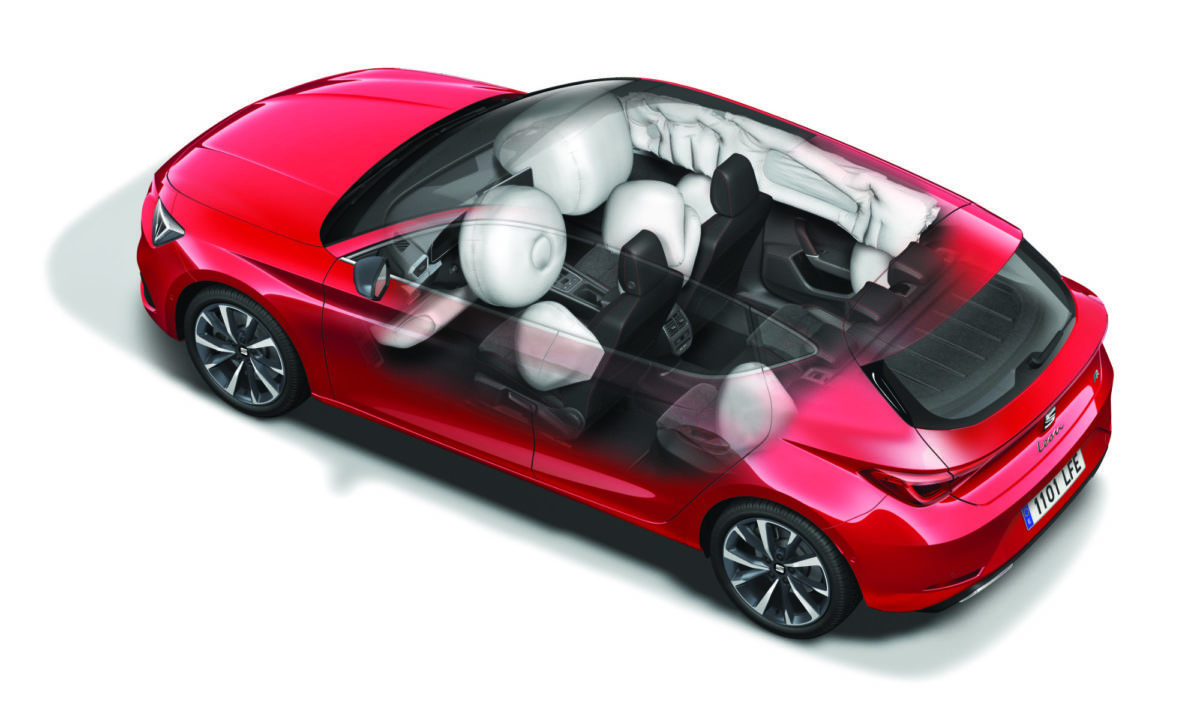The new SEAT Leon has been awarded a maximum five-star safety rating from independent testing organisation, Euro NCAP.
Both the combustion engine (petrol and diesel) and plug-in hybrid variants of the new Leon were tested by Euro NCAP, scoring highly in all areas: Adult Occupant 92%, Child Occupant 88%, Vulnerable Road User 71% and Safety Assist 80%.
Occupants benefit from the inclusion of seven airbags as standard, including the new front-central airbag that prevents head contact between the driver and front passenger in the event of a side collision.
A range of the latest active safety systems use data from a variety of feeds and sensors ensures new Leon sees the road ahead like never before and, importantly, is ready to adapt and react to changing driving scenarios.
Systems including Autonomous Emergency Braking, Side and Exit Assist, Traffic Sign Recognition, Traffic Jam Assist, Light Assist and Pre-Crash Assist, work in unison to create a protective bubble around the vehicle and for occupants.
The Pre-Crash Assist system reacts in as little as 0.2 seconds should it detect a collision is about to happen – the seatbelts pre-tense, the hazard lights flash, the side windows and sunroof close – helping protect the passenger compartment.
“We’re extremely proud that the new SEAT Leon achieved Euro NCAP’s top rating across all its different variants – five-door and Estate body types, combustion engine and PHEV powertrains. This is a reflection of the emphasis we place on safety, and our openness to integrating the latest technologies, whether active or passive, to achieve this goal.”
Dr Werner Tietz, SEAT’s Vice-President for Research and Development
Euro NCAP re-evaluates its testing practices every two year, and the latest are the strictest and most thorough to date. SEAT is committed to continuing to develop vehicles that excel during the tests, no matter how strict the regulations become.

A key change for Euro NCAP’s latest test procedures is the introduction of the moving barrier to moving car frontal crash test, replacing the moderate offset-deformable barrier test. The test not only helps the organisation to evaluate the protection of occupants inside the car, but assesses the vehicle’s front-end structures.
Side impact tests have also been updated to include adjustments to the near-side barrier test speed and mass, increasing the severity of the crash. For the first time Euro NCAP evaluates far-side impact protection, focusing on the protection and the potential interaction between driver and front seat passenger in a collision.
Euro NCAP has placed further emphasis on the latest generation of active safety systems, including new scenarios to rate Autonomous Emergency Braking technology including turning at a crossing. There is also a system to evaluate Driver Status Monitoring systems, designed to detect driver fatigue and distraction, as part of the Safety Assist assessment.
Read our review of the new MK4 Leon petrol and watch out of our PHEV and ST reviews soon.


